Surface Material Trends for a Regenerative Future
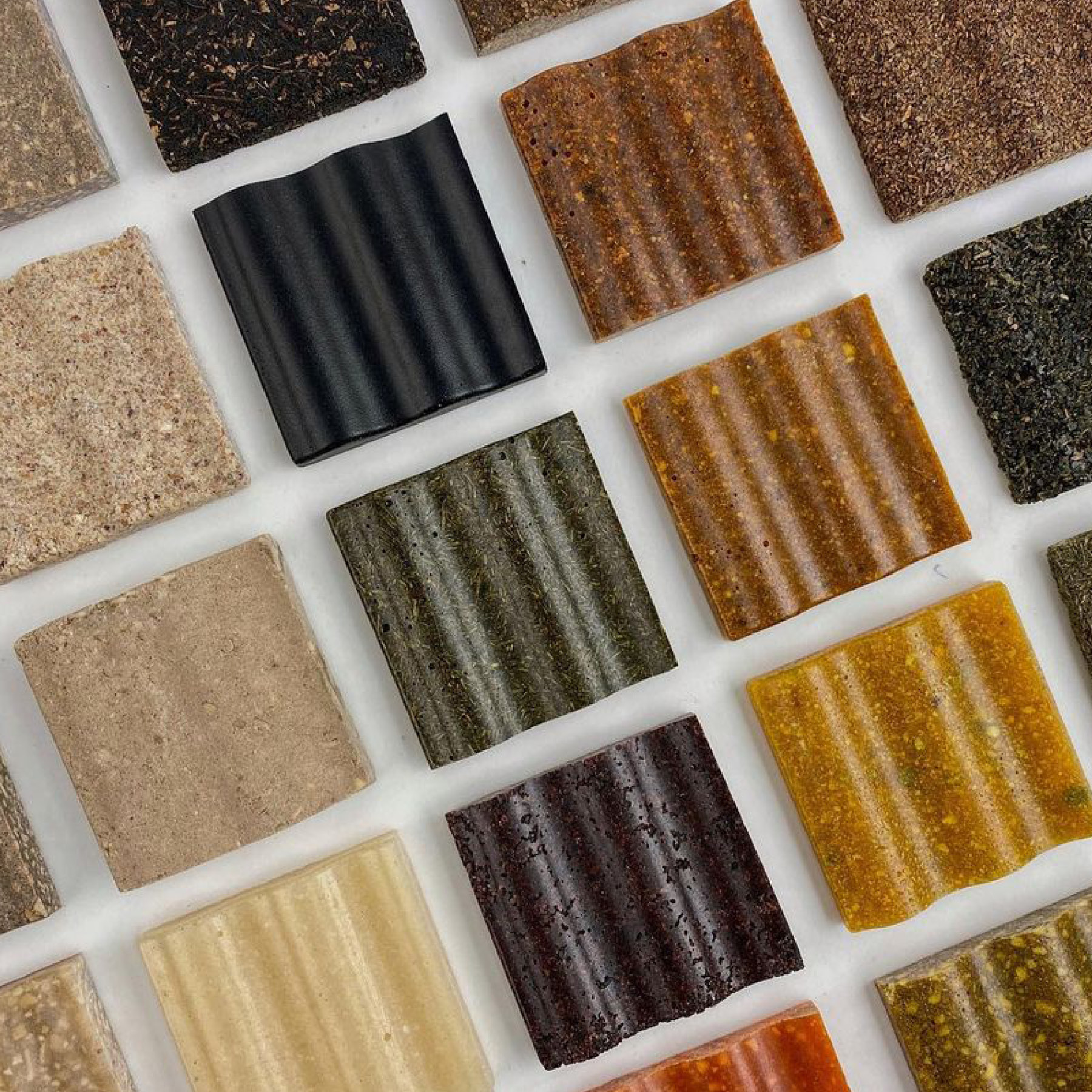 Carolina Härdh for Vrä, Ottan Studio
Carolina Härdh for Vrä, Ottan Studio What would the world look like if every new product manufactured left the eco-system richer than before, if we designed with a focus to work with nature rather than stripping the value from it? Would we still be facing a global, environmental disaster?
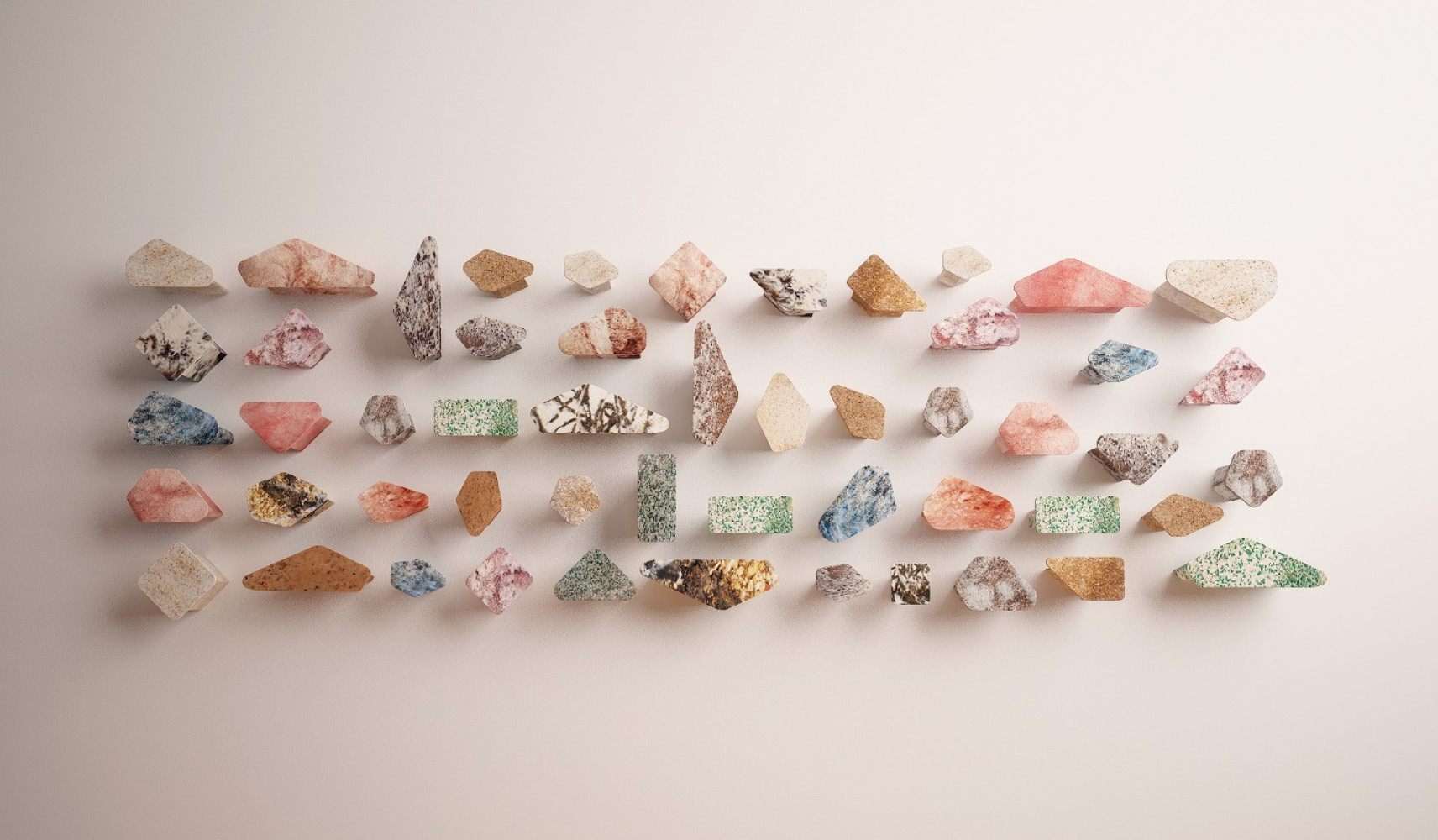
Regenerative design aims to work with nature, benefiting the environment and helping to sustain life within it. Constantly nurturing and naturally replenishing to build a greater ecology, with an emphasis on giving back to the natural landscape, rather than take. This is a movement sweeping across design disciplines and surface material trends to completely overhaul the way we innovate, manufacture and build.
This post centralises the work of pioneering designers, showcasing their exploration into circular design processes, and pushing the boundaries of waste as a design resource.
Interior designers, architects and product designers are required to be the driving force behind influencing and encouraging clients to embrace the aesthetics of these new surface material trends. Ensuring businesses, developers and the wider community take responsibility for excess waste by partnering and working with local communities or designers to re-purpose waste in a positive and celebratory way.
Food Waste Furniture
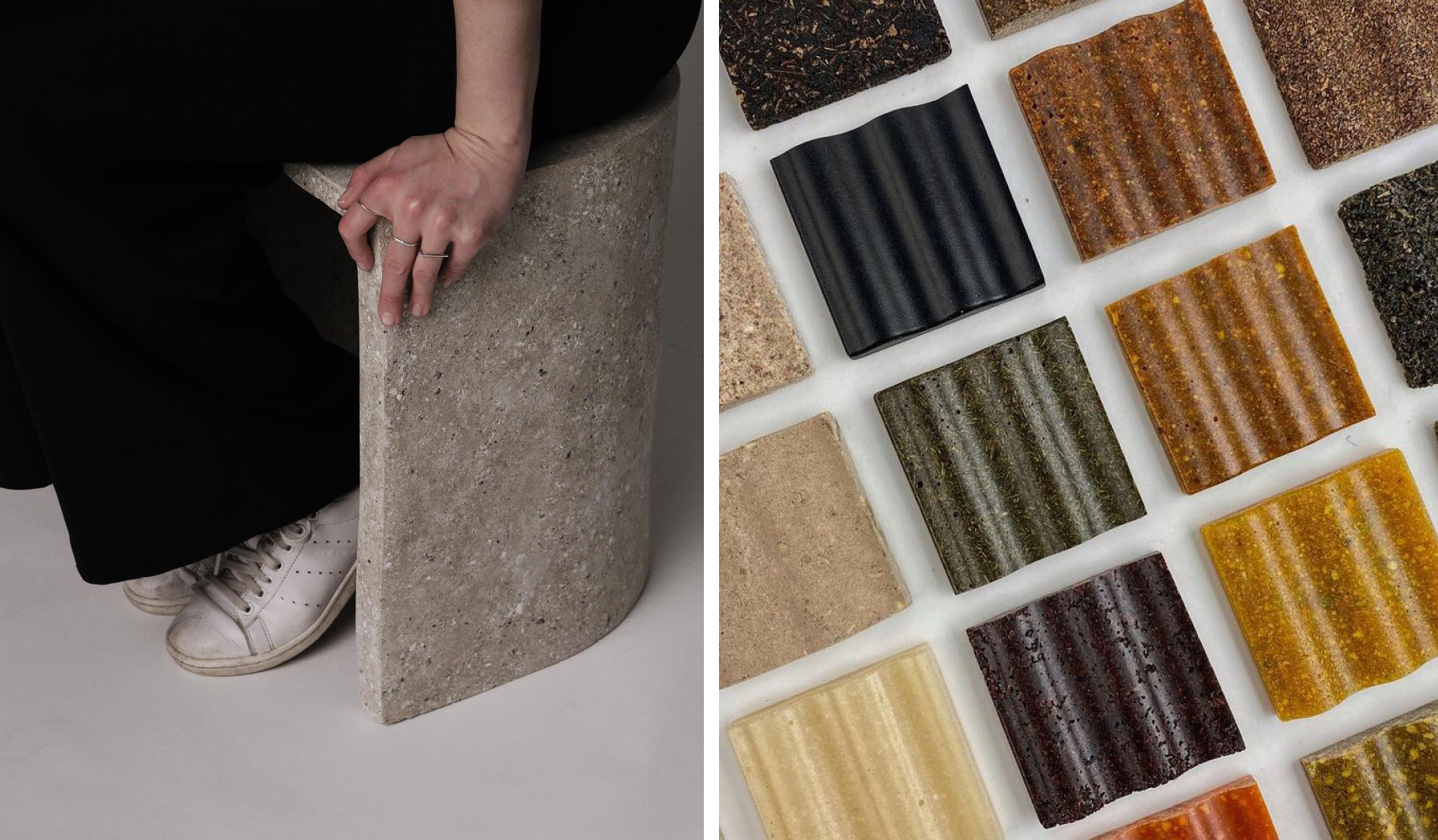
Designer Carolina Härdh has combined the leftover food (rice starch, fish bones and oyster shells) from the kitchen of Gothenburg restaurant, Vrä, to create a material with a speckled texture that resembles terrazzo. The biomaterial has been made into a dual-purpose stool and side table, to be used in the restaurant, with the aim of showing guests the value of food waste.
Considering the scalability of this concept, Turkey based start-up, Ottan Studio, focuses on up-cycling organic waste into high-quality materials that can be used in interior design and industrial products. They have come up with an innovative process to turn food, agricultural and garden waste into commercially viable products, such as furniture, lighting, and decorative panels.
Industrial Treasure

London based designer, Charlotte Kidger, has collaborated with Mass Concrete and Ginko Projects to create a waste-based terrazzo surface. The terrazzo is made using a combination of construction waste (which includes ceramics, brick, rubble and shells), recycled TV screens turned into aggregates and China clay stent – a by-product of extracting China clay from quarries in Cornwall.
Waste Paper
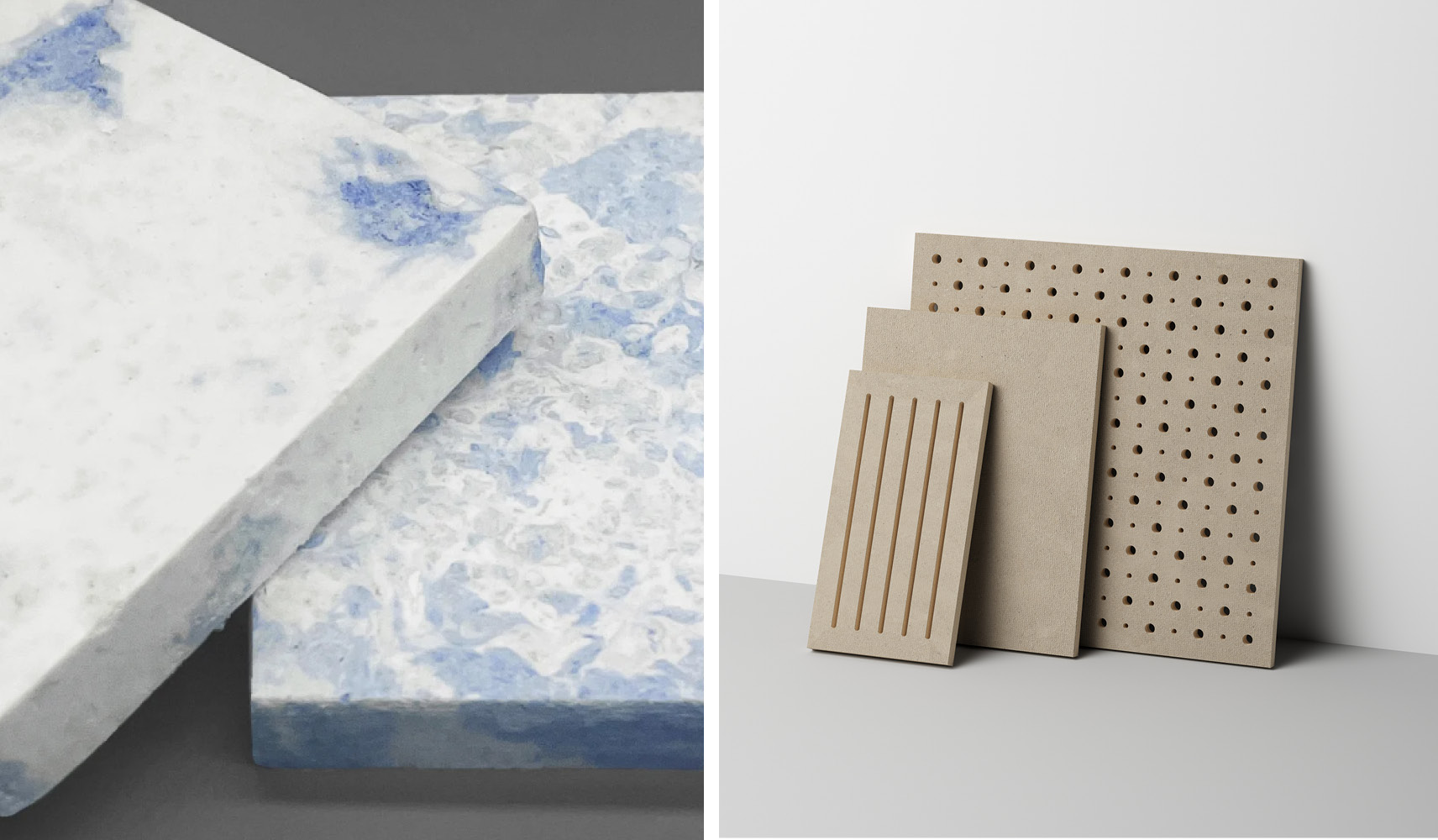
Designer, An Mor, works with local partners to classify, shred, and manufacture waste paper into a new fiber ‘clay’ material. Its rigid properties and marble aesthetics present a unique building material for furniture, as well as many other design possibilities.
Barcelona-based start-up, HONEXT, have developed a sustainable alternative to traditional partitioning and cladding materials – a construction board material made from a combination of enzymes and cellulose residue which is taken from cardboard and paper waste generated at paper mills.
Biodegradable Composites
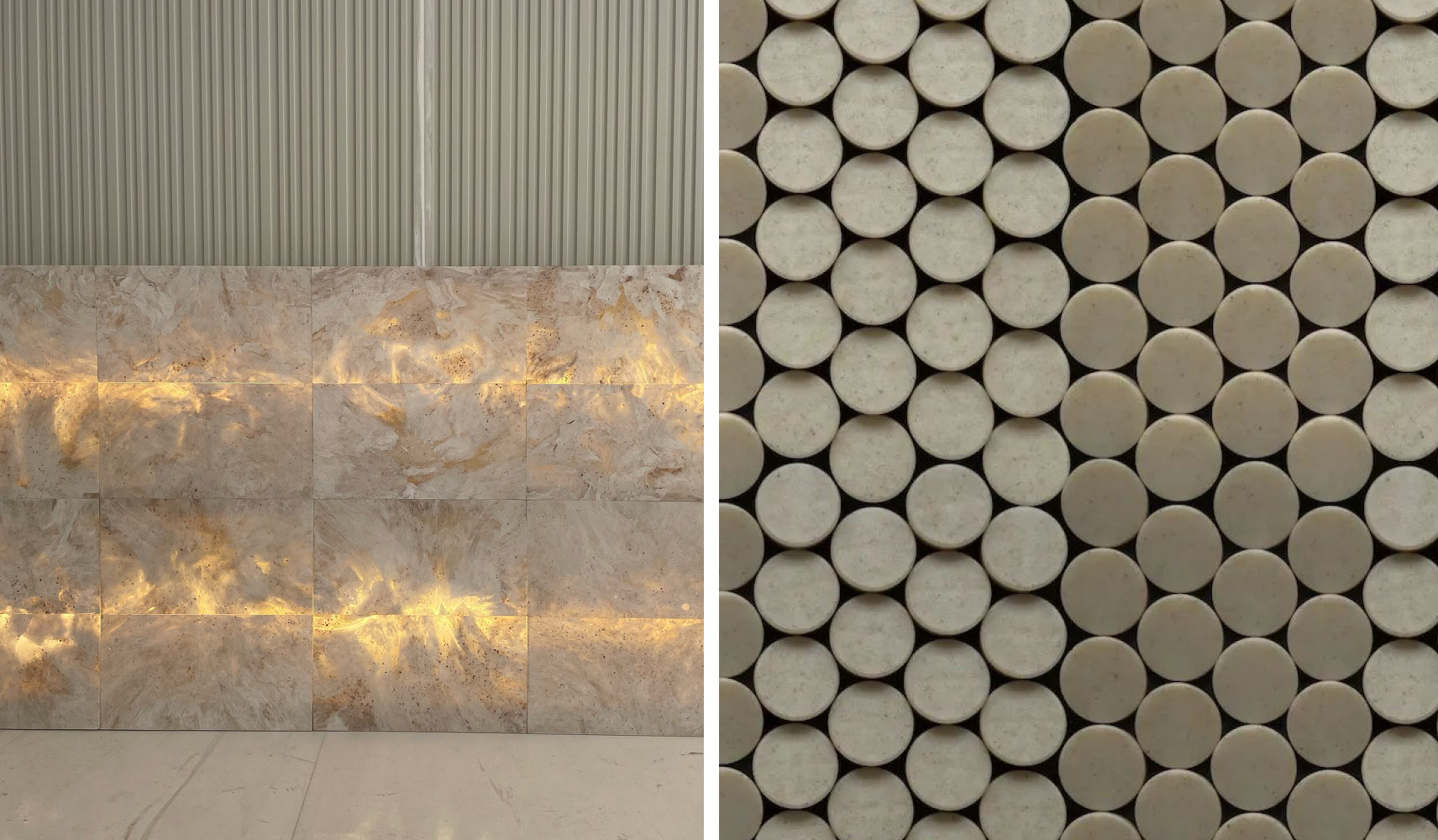
Shell Homeage, a project by global award-winning material designer, Rania Elkall, is a collection of biodegradable and fully compostable materials made from egg and nutshell waste. Her material experiments bring unique pattern, colour and texture to home accessories, furniture, cladding and tiles. The image featured is custom-made cladding obscured with indirect light, making it a desirable solution for kitchens and bathrooms.
In the same vein, design and architectural studio, Giles Miller, have collaborated with material designers, High Society Studio, to launch a range of Eco Tiles, an exciting new material collection developed from waste streams of hemp, coffee, wine and tobacco production. The tiles are robust and visually pleasing, carrying forward all the qualities of traditional ceramic, wood and stone tiles whilst being fully biodegradable and compostable, meaning they leave no trace on the planet.
How can your business contribute to positively transforming the planet as we reach a critical moment in time to make profound and impactful changes?
The TrendBible consultancy team have been supporting brands and businesses in exploring innovative and sustainable solutions to new product development across a broad range of industries. If we can support you in this area, visit our Consultancy page or please drop us an email, we’d love to hear from you. Get in touch at letstalk@trendbible.com.